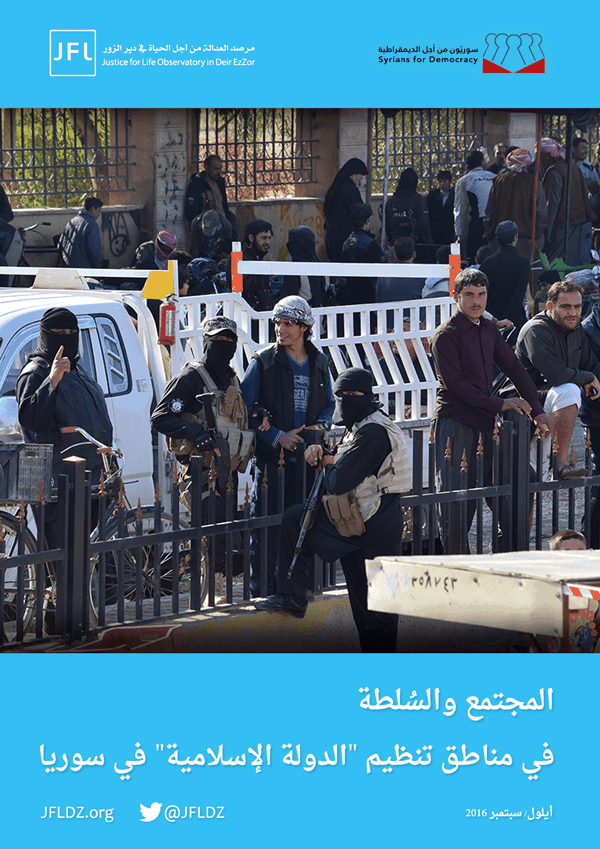
مرصد العدالة من أجل الحياة في دير الزور
إعداد:
فيصل دهموش المشهور
تجمع سوريون من أجل الديمقراطية
The entire control of the “Islamic State” over Dier Ezzor, Al Raqqa, and the eastern countryside of Aleppo in mid-July 2014 has formed a fundamental shift, not only in the traditional strategies that are adopted by the Jihadist/Salafist groups, but also in the status of the organization itself as it gained vast territories including resources and communities. This formulated a historical turning point by announcing the state of “Islamic Caliphate” in those areas in Syria and Iraq.
The “Islamic State” group has imposed its theocratic authority on the local communities in its held areas. It controlled the destinies of the locals along with their livelihoods. It worked gradually and systematically on establishing governance institutions and apparatuses in those communities. It worked hard to solidify its social and political authority by compulsion and intimidation. It saved no chance to terrorizing them and ruling them with fire and steel. Despite the fact the “Islamic State” has been established in the Iraqi environment, and has been influenced by the nature of the political and sectarian conflict, has experienced the Iraqi social structure including strength and weakness points, in addition to the fact that most of its leader are not Syrians, thus, after more than two years in Syria, the group is still facing challenges in terms of rooting its authority. This issue depends on its ability to penetrate into the social structure in its held areas in Syria. This challenge, according to the group and its project, is very important matter, especially that the group very clever and has the ability to read the reality and plan for it in order to benefit from its contradictions. This is not related only to the fact that the populations of its areas are Sunni Arabs, but also related to how much it can convince the locals with feasibility of its political and religious project, and how much its project can fit their aspirations. It is also related to their options, as they are rebels who rose up against the totalitarian regime of Assad.











